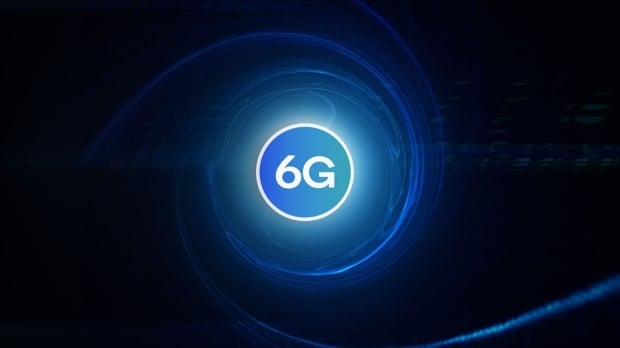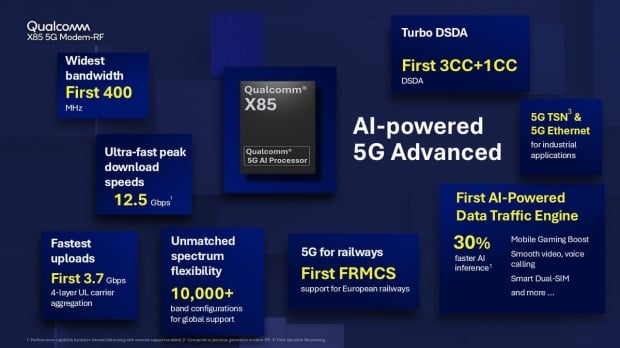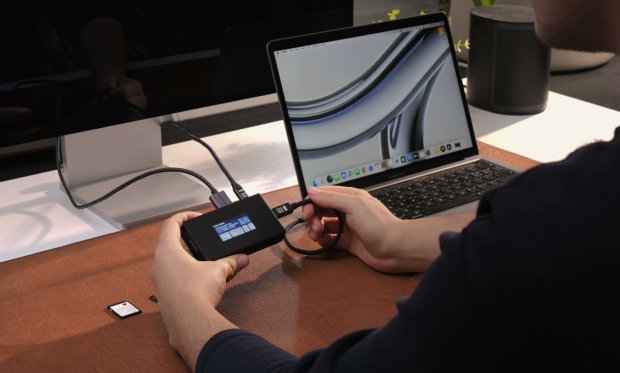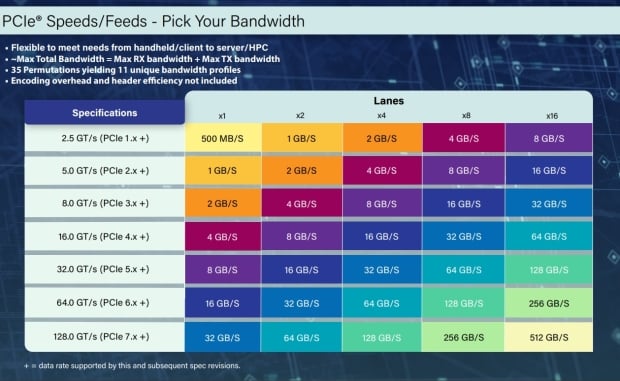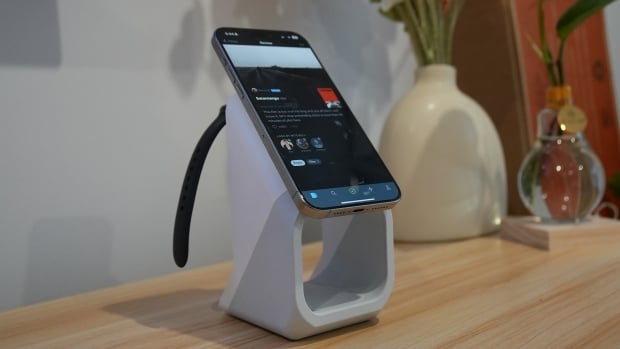Connectivity & Cloud
The latest and most important Connectivity & Cloud news.
Qualcomm and MediaTek are now focusing on developing next-gen 6G technology
Qualcomm and MediaTek have decided to start focusing on next-gen 6G technology, announced during Mobile World Congress 2025 this week.
The US-based chip maker has said it's working with Nokia Bell Labs and Rhode & Schwarz to develop and evolve its 6G cellular technology, which has a huge focus on AI (of course). Qualcomm expects future cellular networks to learn and adapt over time, so AI-native protocols can allow future 6G networks to dynamically adjust its parameters based on real-time conditions.
Qualcomm predicts that 2025 will be the start of 6G standardization, and MediaTek agrees with that. We can expect multiple breakthrough technologies driven for 6G, including hybrid computing, a live low Earth orbit (LEO) broadband NR-NTN trial, sub-band full duplex (SBFD), and the new M90 5G Advanced modem.
Qualcomm announces new X85 modem for Android phones: up to 12.5Gbps download speeds over 5G
Qualcomm has unveiled its new X85 5G Modem-RF for Android, with some crazy-high download speeds of up to 12.5Gbps and upload speeds of up to 3.7Gbps.
In comparison, the current-gen Qualcomm X80 5G modem is capable of up to 10Gbps download and 3.5Gbps upload, so those download speeds have increased significantly, by another 25%. The new X85 modem is Qualcomm's eighth-generation 5G modem-to-antenna solution, and fourth-generation AI-powered 5G connectivity platform with support for 5G mmWave, sub-6GHz, and Satellite technologies.
Qualcomm's new X85 5G modem has a 5G AI processor with a dedicated Tensor accelerator, which provides 30% faster AI inference, providing lower latency, wider coverage, and improved power efficiency that pave the way for a responsible, reliable 5G experience in multiple different conditions.
Meta plans 50,000km undersea cable: connects US, Brazil, Africa, India, and Australia
Meta has just announced its most ambitious subsea internet cable project in history: Project Waterworth, and once it's complete it will reach 5 major continents -- the United States, India, Brazil, South Africa, and Australia.
Subsea cable infrastructure including Project Waterworth are the backbone of global digital infrastructure, which accounts for over 95% of intercontinental traffic across the world's oceans to provide digital communication, video and streaming services, online gaming, online transactions, and more.
Project Waterworth will be a multi-billion dollar, multi-year investment in order to "strengthen the scale and reliability of the world's digital highways by opening three new oceanic corridors with the abundant, high speed connectivity needed to drive AI innovation around the world" explains Meta on its website.
Dockcase combines USB-C ports with an M.2 SSD enclosure to birth a 7-in-1 smart hub
Dockcase, known for its over-the-top connectivity solutions that combine functionality with style, has yet another project underway, the Smart USB-C Hub 7-in-1 that comes with an M.2 SSD.
The new device is designed for creators on the go or anyone who needs extra USB ports on their laptop. But a user that would get the most out of this device is someone in need of a single device capable of transferring videos/images from an SD card but also needs extensive connectivity options and a place to back up data via the in-built replaceable SSD. The idea behind the upcoming device is to provide users with the perfect balance of portability and storage, as users will be able to replace the provided SSD with any 2230 and 2242 SSDs.
Additionally, the smart hub has a touchscreen that users can navigate through the UI which has features such as SSD health monitoring, a Read-Only Mode, and much more. Additionally, the smart hub comes with an in-built fan that can be adjusted via the touchscreen options. The idea behind the fan is to implement a cooling system for users who are taking advantage of the smart hub's capabilities over longer periods of time. Users are also able to take advantage of the 4K @ 120Hz support support, along with the 100W power delivery charging.
Alogic unveils stylish and powerful battery bank for monstrous portable charging
Creators who travel regularly but want to keep on top of their creative duties are likely in need of a power source to keep their laptop, phone, monitor, etc -- running for as long as possible.
Alogic has set out to provide a solution to this problem by unveiling the Ark Pro, a new power bank designed for high-performance users on the go. The Ark Pro is aimed at users wanting to combine style with a monstrous battery capacity, as the Ark Pro features a whopping 27,600mAh capacity that's coupled with 140W USB-C charging support. With this level of charging, users can rest assured the Ark Pro will easily charge any Thunderbolt or USB-C laptop, and for those wondering if it can be brought on flights, Alogic states the Ark Pro is IATA-compliant, meaning it is certified for plane travel.
As for specifics, the Ark Pro features two USB-C ports, with an additional 22.5W USB-A charging port. Moreover, users can plug in multiple devices at once for simultaneous charging. For those power users who want to see what their power bank is outputting, Alogic has equipped the Ark Pro with a smart display that showcases real-time charging data, including the charging rate, estimated time to recharge, battery health, and internal temperature.
Apple secretly joins the Starlink satellite internet connectivity party with its iPhone
Apple has been secretly working with SpaceX and T-Mobile to add support for Starlink internet connectivity on its iPhones, which provides an alternative to Apple's in-house satellite communication service.
In a new post on X, Tesla and SpaceX boss Elon Musk said "medium resolution images, music & audio podcasts should work with the current generation Starlink direct-to-phone constellation. Next generation constellation will do medium resolution video".
In a new report from Mark Gurman on Bloomberg, we're learning that that the first users of the new Starlink-powered service on iPhones received text messages from T-Mobile saying: "you're in the T-Mobile Starlink beta. You can now stay connected with texting via satellite from virtually anywhere. To start experiencing coverage beyond, please update to iOS 18.3".
PCIe 7.0 standard launches in 2025: 512GB/sec on x16 port, next-gen Gen7 SSDs enjoy 128GB/sec
The Peripheral Component Interconnect Special Interest Group (PCI-SIG) has just announced the release of version 0.7 of the PCIe 7.0 specifications for the approval of PCI-SIG members.
PCI-SIG is the body that sets the standards for the interface that billions of computers use on their motherboards to connect to devices like GPUs, super-fast SSDs, and more. PCI-SIG has plans to finalize the PCIe 7.0 specifications later this year, in order to keep up with its new standards being unleashed every 3 years.
PCIe 7.0 will be an incredible upgrade in bandwidth, offering double what PCIe 6.0 will offer -- which offers double what PCIe 5.0 is capable of -- with 128GT/s raw bit rate, which works out to a bi-directional transfer speed of 512GB/sec on an x16 connection. PCIe 7.0 will also use Pulse Amplitude Modulation with 4 levels (PAM4) signaling, something that was introduced with PCIe 6.0, allowing it to encode two bits of data per clock cycle, effectively doubling the data rate versus the signaling tech inside of PCIe 5.0 and PCIe 4.0 standards.
This 3-in-1 fast wireless charging station powered my CES 2025 in style
In a world where every device needs its own charging cord, wireless charging is becoming more and more attractive, especially to those who are sick of tangled cords and a messy look on their desk or nightstands.
CES 2025 just wrapped up, and with every trade show or event, media are required to have all devices charged and ready to go for the next day of coverage. The same principle can be applied to anyone who travels, and when traveling, one doesn't necessarily want to carry numerous cords for each of their devices, which is why it's worth investing in portable chargers and/or a singular device with multiple charging zones.
Journey provided its 3-in-1 fast wireless charging station, which quickly became one of my favorite devices as I was able to get back to the hotel room and place my iPhone 15 Pro Max, Apple Watch, and AirPods onto the dock and know all three will be fully charged and ready to go by the time I woke up. The NOVA 3-in-1 fast charges phones, earbuds, and watches simultaneously and is able to deliver up to 15W for iPhones 12 and above.
Elon Musk deploys Tesla Cybertrucks with Starlink: free Wi-Fi for California wildfire victims
Elon Musk is helping California wildfire victims by deploying Tesla Cybertrucks around the area as mobile power stations using Starlink internet terminals to provide Californians with free Wi-Fi, as regular internet and phone services are down.
Elon posted on X explaining: "We are going to position Cybertrucks with Starlinks and free Wi-Fi in a grid pattern in the areas that most need it in the greater LA/Malibu area".
"This was in reply to a previous post on X, where the SpaceX and Tesla boss said: "Apologies to those expecting Cybertruck deliveries in California over the next few days. We need to use those trucks as mobile base stations to provide power to Starlink Internet terminals in areas of LA without connectivity. A new truck will be delivered end of week".
Starlink and T-Mobile work together to enable satellite SMS for Los Angeles wildfire victims
SpaceX and T-Mobile are working to deliver Starlink Direct-to-Cellular (DTC) service over impacted areas of Southern California to deliver wireless emergency alerts, SMS, and 911 texting to those who need it.
T-Mobile announced: "Today T-Mobile and Starlink opened up T-Mobile Starlink Direct-to-Cellular service over impacted areas of Southern California to deliver wireless emergency alerts and SMS and enable 911 texting. While SpaceX's direct-to-cell constellation has not been fully deployed, we are once again temporarily making this early test version available for those who need it most".
The carrrier said that its network "held strong" during the crisis, and that it has "restored roughly half of the sites that were impacted by commercial power loss". T-Mobile continued: "As conditions safely allow, our teams are evaluating impacted sites in Altadena, Duarte, Calabasas, Malibu, Fillmore and Agoura Hills, and continuing to deploy and refuel portable generators to sites until commercial power is restored".


